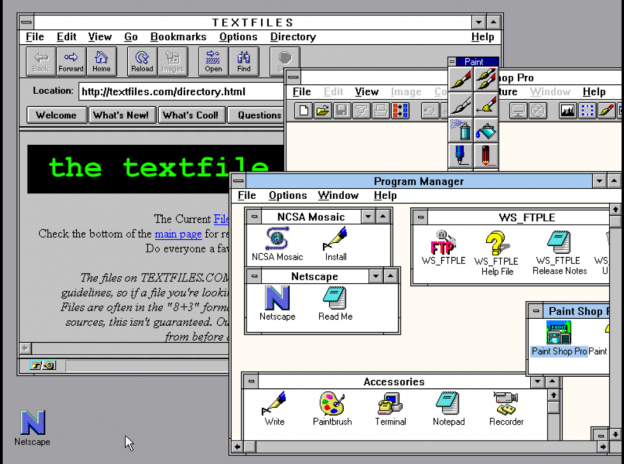The Internet Archive is mostly known for archiving the web, a task the San Francisco-based nonprofit has tirelessly done since 1996, two years before Google was founded. The Wayback Machine now indexes over 435 billion webpages going back nearly 20 years, the largest archive of the web.
Earlier this month, the Archive made headlines with the latest addition to its collection: nearly 2,300 vintage MS-DOS games, playable in the browser. A technical breakthrough, the games are played on the popular DOSBox emulator, ported to Javascript by one brilliant, talented engineer. The experience of clicking a link and playing a game you haven’t seen in 25 years is magical, and many other people felt the same way.
News of the MS-DOS Game Collection got widespread media coverage, including The Washington Post, The Verge, and The Guardian, with thousands of people hitting the site every minute. Millions of people are discovering software they’ve never seen before, or revisiting games from their past. People are making Let’s Play videos of 30-year-old games, played in a Chrome tab.
For most people, it ends there. But that’s barely scratching the surface. When this launched, there were dozens of confused comments from people wondering what old videogames has to do with Internet history. In my mind, this stems from mistaken perception issues of the Internet Archive as solely an institution saving webpages. But their mission and motto is much broader:
“Universal access to all knowledge.”
The Internet Archive is not Google. The Internet Archive is a chaotic, beautiful mess. It’s not well-organized, and its tools for browsing and searching the wealth of material on there are still rudimentary, but getting better. But this software emulation project feels, to me, like the kind of thing Google would have tried in 2003. Big, bold, technically challenging, and for the greater good. This effort is the perfect articulation of what makes the Internet Archive great — with repercussions for the future we won’t fully appreciate for years.
But here’s a glimpse: last week, one of the JSMESS developers managed to get Netscape running on Windows 3.1 with functional networking. All of computing history is within our grasp, accessible from a single click, and this is the first step. It’s not just about games — that’s just the hook. It’s about preserving our digital history, which as we know now, is as easy to delete as 15 years of GeoCities. We can’t expect for-profit corporations to care about the past, but we can support the independent, nonprofit organizations that do.
View full post here.

